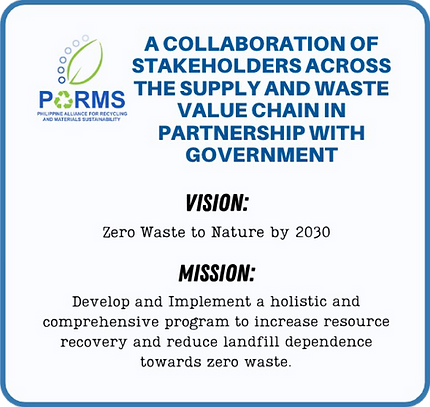What is RA 11898 or the Extended Producers Responsibility Law (EPR Act of 2022)?

The world faces a significant crisis due to unsustainable consumption and production, particularly with the rampant rise in plastic waste. From 2.3 million tonnes in 1950, plastic production has surged to 440 million tonnes in 2015, with the Philippines alone contributing 2.7 million tonnes annually. This has been primarily due to a linear economic approach.
To address this, the Extended Producer Responsibility Act of 2022 (Republic Act number 11898) was introduced.
Previously, manufacturers were only responsible for the environmental impacts during production. Now, this act mandates large enterprises, with assets exceeding Php100M, to manage the environmental footprint of their products throughout their entire lifecycle, from creation to disposal.
This means that companies are now required to recover or remove an equivalent amount of the plastic product footprint they have created.
While micro, small, and medium-sized businesses are exempt, they're encouraged to adopt the practices.
This legislation targets plastic items used for packaging, including various forms of plastics, classified as Rigids and Flexibles. Large Enterprises must create an Extended Producer Responsibility (EPR) programs that involve measures like reducing plastics, adopting reusable items, enhancing recyclability, adopting a MRF and setup a recovery & recycling centers.
These initiatives can be carried out individually or in groups, and reports must be submitted to the Department of Environment and Natural Resources.
Non-compliance results in penalties, but compliant companies gain incentives, pushing them towards a circular economy approach, which also helps in reducing greenhouse emissions and preventing further water pollution.
This act is a significant step for the Philippines towards a sustainable and circular economic model, fostering green jobs and promoting eco-friendly business behaviors. A collective effort from all societal sectors is necessary to transition away from the current unsustainable model. The Philippine Alliance for Recycling and Materials Sustainability (PARMS) EPR Program is one of the initiatives promoting this change.


PARMS is a non-stock, non-profit organization that was established in 2014. It is a coalition of businesses, government agencies, and civil society organizations that are committed to promoting sustainable waste management in the Philippines. (Learn more)
PARMS is a leading voice in the Philippine waste management landscape. It has been instrumental in the passage of the EPR Law of the Philippines. It's mission is to "develop and implement a holistic and comprehensive program to increase resource recovery and reduce landfill dependence towards Zero Waste." It does this by working with its members to develop and implement sustainable waste management projects, advocate for policies that support sustainable waste management, and educate the public about the importance of sustainable waste management.
In line with these developments, we invite your esteemed organization to contribute to our mission by joining the EPR program. Your participation will be integral in lessening the environmental footprint of consumer products, promoting recycling and reuse, and fostering a circular economy.
To know more about PARMS, you may click on the links below:
Our Strategy
By emphasizing redesign, recovery, and waste processing investment, our integrated strategy champions sustainable practices, bolsters the circular economy, and strengthens collaborations between the public and private sectors, ensuring lasting benefits for both the environment and society.
To know more about the EPR, please click on the Official DENR EPR Materials below:

Benefits for Obliged Enterprises for joining the PARMS EPR Program:
-
Ensuring compliance with Sec. 44-E via registration in the PARMS EPR Program.
-
Assistance in meeting waste diversion requirements through our extensive network of recognized waste diverters.
-
Cost-saving potential through our collective strength and action in negotiating with waste diverters.
-
Access to periodic capacity-building programs for discussion, collaboration, and sharing of best practices.
-
Collective representation in advocating for favorable policies and regulations that reflect member interests and promote sustainable practices.
-
The chance to exhibit environmental leadership and contribute to a more sustainable Philippines.
-
Enhanced reputation among clients, stakeholders, and industry counterparts.
-
Opportunities for collaboration, learning, and networking at workshops and various events.
We look forward to the possibility of your organization becoming an integral part of our mission to foster a sustainable future for the Philippines. To initiate your organization's enrollment, kindly visit our EPR Portal to register. We have available instructions on how to register.
Thank you for considering this invitation. Together, we can contribute to a greener, more sustainable future for our nation.
